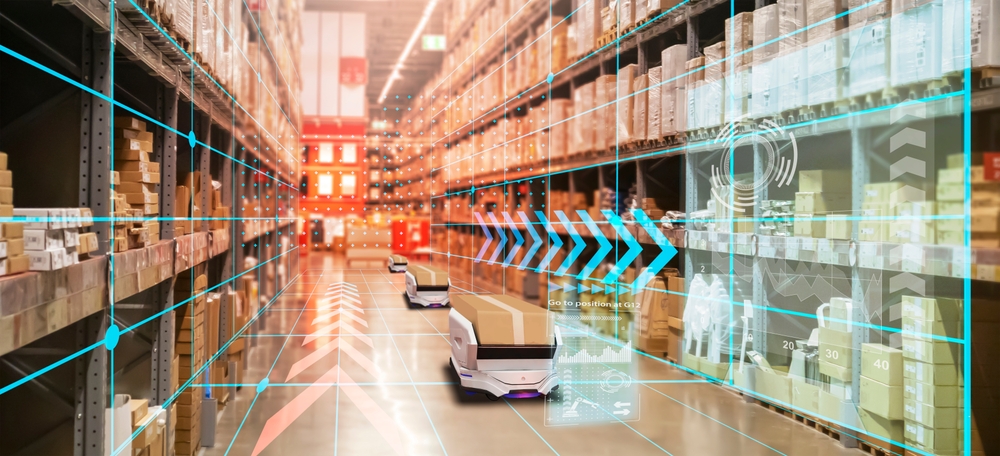

In an era where technology and logistics are reshaping the business landscape, smart warehouses emerge as pivotal components in modern logistics. Smart warehousing serves as the backbone of efficient supply chain operations and transforms how businesses in logistics and courier services handle inventory. For supply chain professionals, e-commerce entrepreneurs and business leaders striving to stay in a winning position, understanding the role of smart warehouses becomes indispensable.
Defining the Smart Warehouse
Smart warehouses represent the next evolution in warehousing solutions. They integrate advanced technologies such as the Internet of Things (IoT), artificial intelligence (AI), and robotics to optimise operations. Unlike traditional warehouses, smart warehouses employ data-driven strategies, significantly improving efficiency, accuracy and speed in order fulfilment. The central benefit of these systems is their ability to automate route tasks through powerful algorithms. This reduces human error by enhancing inventory flow toward faster sorting and picking and offering better customer service—real-time visibility into inventory levels, enabling rapid decision-making and improved operational control.
The Technology Behind Smart Warehousing
The backbone of smart warehouses consists of interconnected devices and systems that communicate and collaborate seamlessly. IoT synchronises devices across the warehouse, updating real-time data over inventory and warehouse operations. Simultaneously, sensors help track goods and allow logistics businesses to trace stock levels. This process facilitates hassle-free supervision, minimising the risk of errors, efficiently managing inventories, and improving overall warehouse management.
Robotics, including automated guided vehicles (AGVs) and drones, facilitate the physical movement of goods, enhancing the speed and accuracy of sorting, picking, packing, and shipping operations. These robotics operate round the clock, improving courier services’ efficiency and productivity. Automatic Guided Vehicles (AGVs) integrated with robotics simplify the movement of goods within a warehouse, accelerate operations, and reduce the possibility of human error.
Related article: 4 Trends in Automotive Supply Chain That Ease Disruptions
Implications for Logistics and Supply Chain Management
Integrating smart warehouses into logistics networks has profound implications for supply chain management. These facilities are not merely static storage locations but dynamic hubs supporting the logistics ecosystem.
Enhancing Efficiency and Reducing Costs
Smart warehouses streamline logistics processes, reducing the time and cost associated with inventory handling and transportation. By automating repetitive tasks and optimising workflows, these facilities decrease the need for manual labour, leading to significant cost savings.
Smart warehouses also promote sustainability by utilising resources, reducing waste, and cutting carbon emissions – a growing concern in global logistics businesses. This efficiency translates into lower operating costs and improved service levels, providing a competitive edge in the market.
Facilitating E-commerce Growth
The e-commerce sector, characterised by rapid growth and high customer expectations, benefits immensely from smart warehouses. These facilities support the demands of e-commerce businesses by ensuring quick and accurate order fulfilment, even during peak periods. Fast, accurate services, including real-time inventory tracking and automated picking systems, enable e-commerce businesses to maintain high service standards, reduced lead times, and overall customer satisfaction. Furthermore, their scalability allows companies to expand their operations seamlessly as demand increases.
Related article: 5 Ways Autonomous Trucks are Taking Over Logistics
Supporting Third-Party Logistics (3PL) Providers
For 3PL providers, smart warehouses represent a strategic asset that enhances their value proposition. By leveraging advanced technologies, these providers can offer their clients more efficient and reliable logistics solutions. Smart warehouses enable 3PLs to manage diverse client requirements, customise services, and optimise logistics networks. This flexibility and capability are critical for 3PLs seeking to stand out in a competitive market and attract more clients.
Overcoming Challenges in Smart Warehousing Implementation
Despite their advantages, implementing smart warehouses presents specific challenges that businesses must address to realise their full potential.
Technological Integration
Integrating innovative warehouse technologies with existing systems can be complex and requires careful planning. Businesses must ensure that new technologies are compatible with legacy systems and that data flows seamlessly between platforms. This integration often necessitates IT infrastructure investments, staff training, and collaboration with technology partners. However, the long-term benefits of improved efficiency and competitiveness justify these efforts.
Data Security and Privacy
As smart warehouses rely heavily on data collection and analysis, ensuring the security and privacy of this data is paramount. Businesses must implement robust cybersecurity measures to protect sensitive information and prevent unauthorised access.
Moreover, compliance with data protection regulations is essential to avoid legal repercussions and maintain customer trust. Businesses should adopt best practices for data management and collaborate with experts to strengthen their security posture.
The Future of Smart Warehousing in Logistics
The role of intelligent warehouses in modern logistics is set to expand as technological advancements continue to reshape the industry. Emerging technologies such as blockchain, augmented reality (AR), and machine learning hold the potential to enhance warehouse operations and supply chain efficiency further.
Embracing Innovation and Adaptability
Businesses must embrace innovation and adaptability to thrive in this complex and ever-changing landscape. By staying informed about new developments and investing in smart warehouse solutions, companies can position themselves for success in the future.
The integration of blockchain technology, for example, could enhance transparency and traceability in supply chains, while AR could improve worker productivity and accuracy in picking operations. Machine learning algorithms could further optimise inventory management and demand forecasting.
Building Collaborative Ecosystems
The future of smart warehousing also involves building collaborative ecosystems that bring together logistics providers, technology companies, and other stakeholders. By fostering partnerships and sharing knowledge, businesses can create synergies that drive innovation and improve overall supply chain performance.
Critical Insights for Business Leaders
Smart warehouses are revolutionising modern logistics by providing efficient, accurate, and scalable solutions to meet the demands of today’s dynamic business environment. As supply chain managers, e-commerce business owners, and business managers navigate the complexities of logistics, understanding and leveraging the capabilities of smart warehouses is crucial.
By embracing technological advancements and addressing implementation challenges, businesses can unlock the full potential of smart warehousing and achieve greater efficiency, adaptability, and competitive advantage in the market.
Contact Aramex to learn more about our advanced logistics and warehouse solutions.



